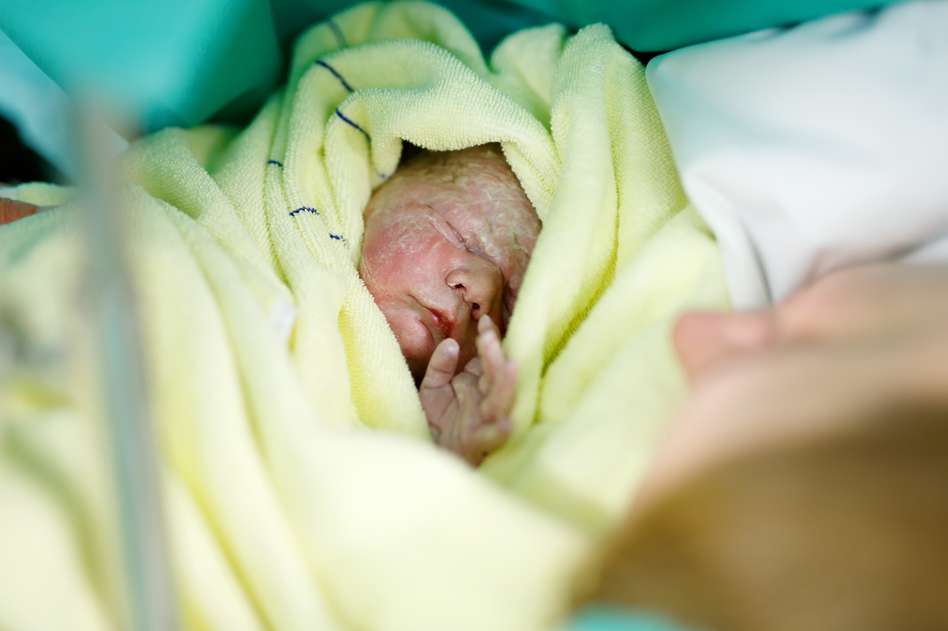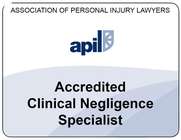medical negligence
Safety of maternity care: rapid resolution and redress scheme

In 2017, the government consulted on a new fast-track compensation scheme - a rapid, resolution and redress scheme (RRR) - for children left suffering brain injury as a result of medical error at the time of their birth.
The Health and Social Care Select Committee Report into the safety of maternity care has, amongst other things, recommended immediate implementation of RRR and the government response is expected on 6 September 2021.
Janine Collier, Partner and head of clinical negligence at Tees law discusses the aims of the original RRR Scheme, reviews how it was expected to work in practice when first proposed and shares her thoughts on the proposals.
Following her national maternity review, in the 2016 report Better Births - Improving outcomes of maternity services in England: a five year forward view for maternity care, Baroness Cumberledge recommended that the government give serious consideration to introducing a “rapid resolution and redress scheme” which would pay out for birth injuries without families needing to bring legal action; provide more a more rapid, caring response to serious harm; and develop a stronger learning culture and improved outcomes.
The Government put more flesh on the bones and, in 2017, proposed and consulted on the RRR Scheme. This was intended to be a viable alternative to litigated medical negligence claims for families affected by severe avoidable birth injuries.
Whilst the Scheme seemed to have been largely “shelved”, the 2021 Report into the Safety of maternity care recommends that RRR be implemented immediately.
What would this mean?
What is RRR?
RRR is a voluntary administrative scheme intended to:
- reduce the number of severe avoidable birth injuries by encouraging a learning culture
- improve the experience of families and clinicians when things go wrong; and
- make more effective use of NHS resources
There are two stages to the Scheme.
1. Stage One focusses on the investigation of potentially avoidable instances of neurological birth injury.
2. Stage Two aims to provide a better service to families, including earlier support and a compensation package.
Stage one
The Scheme concentrates on a very small number of babies who have suffered severe avoidable birth injury in England.
Stillbirths, neonatal deaths, maternal injuries and maternal deaths, harm associated with pre-natal and antenatal care, multiple births and severe birth trauma (e.g. fractured skull following forceps delivery) are excluded.
Eligibility would be determined by considering specific clinical markers in the first seven days of life using the RCOG Each Baby Counts (EBC) criteria:
- hypoxic-ischaemic encephalopathy grade 3 (an indicator of asphyxia related neonatal neurological abnormality); or
- decreased central tone and comatose and seizures (of any kind);
- or any baby which receives active therapeutic cooling treatment.
It is not clear whether a family or consultant could appeal the eligibility of a baby they believe should be included, if that child does not meet the parameters of the scheme or whether a family could choose to enter the scheme having already pursued (unsuccessful) litigation.
How will cases be investigated?
The scheme proposes timely, standardised, independent too-cause analysis investigations of potentially avoidable instances of brain injury at birth, to understand the common causes of avoidable harm and share learning to reduce future harm.
Families should have the opportunity to be involved in the investigation. There should be an early apology to families – “an expression of regret for any harm that has occurred and commitment to thoroughly investigate the sequence of events to identify what went wrong and establish whether harm was avoidable, and to demonstrate how learning has been put into practice to avoid similar incidents in future”
Implementing learning
Any learning should be shared across regional maternity networks.
On a national level, there should be implementation of a centralised system for learning, including analysing incident and claims data to identify areas for safety improvement.
Since the RRR scheme was proposed, there have been a number of developments in the investigation and notification of maternity incidents.
The Healthcare safety investigation branch (HSIB) has replaced the former local Trust Serious Incident Investigations to investigate certain maternity events including stillbirths, early neonatal deaths, severe brain injuries for babies delivered at term and maternal deaths is progress. The quality of investigations has improved in a number of respects: not only are families more involved and the investigation independent, the quality of the reports and recommendations are far superior.
Additionally, NHS Resolution (NHS R) introduced the Early notification scheme which requires Trusts to notify NHS R of maternity incidents surrounding the birth of a child who has suffered potentially severe brain injuries (most commonly cerebral palsy) at birth where certain criteria are met. This was paused from 1 April 2020 to reflect the impact of the pandemic on trusts, albeit trusts have were still required to report all cases to HSIB for investigation. HSIB as then reported all potential eligible ENS cases to NHS Resolution. This arrangement has now been made permanent.
Stage Two
A panel of independent experts (not those who investigated under stage one) would determine whether or not a family is eligible for stage two. Families should also have access to legal advice to help them understand their options.
The panel would consider the care received, the link between this care and avoidable harm and an initial assessment of the child’s prognosis.
Two options are being considered for setting the threshold for eligibility:
1. optimal clinical practice: did the care fall below the standard to be expected of a leading clinical expert?
or
2. reasonable care: was the care provided akin to reasonable practice? This is similar to the current legal test applied in medical negligence cases
It is suggested that in either case, there would be more of a focus on system-level failure rather than individual blame / fault.
Supporting families
If a family is eligible for stage two, the scheme proposes early access to counselling and support in accessing state services, facilitated by a dedicated case manager.
How much compensation will the families receive?
Once eligibility is established, a compensation package would be available.
The scheme provides for compensation to be paid in three parts:
1. An early up-front payment, in the range of £50,000 - £100,000 at around age 4
2. An annual payment, based on need, with assessments at, say age 5, 12 and 18
3. A lump sum award, to be managed by a dedicated Case Manager acting on behalf of the family
A one-off payment of £50,000 - £100,000 at around age 4 is too little, too late. Waiting four years for help may cause avoidable financial and emotional stress for families.
By this time families are often needing to move to suitable housing, with level access accommodation and other adaptations. Equipment (e.g. wheelchairs) may be required. Therapies such as physiotherapy, speech and language therapy and occupational therapy are needed, is insufficient to meet the significant capital costs at or about this age.
Further, the literature shows that timely, appropriate rehabilitation improves long-term outcomes. Delaying the initial payment to age 4, may, in the long run, end up costing the tax-payer more.
The scheme promotes that the annual payments be made “in-kind” through a personal budget type approach administered by a case manager. It is, however, unclear how that case manager would be chosen, what their skills or expertise would be. Also unclear is what autonomy the family would have, for example, to choose between stage and private care, who cares for their child etc.
Other concerns are that there is the potential for the line between local authority personal budgets and any RRR personal budget to become blurred and it is not at all clear how the child’s best interests would be determined under the scheme.
Most families do not want to have to rely on state services, which are already over-stretched, with long waiting times and frequent cancellations compared to private care. Some are reluctant to rely on a state provider, who caused the harm in the first place.
Whilst a shift towards more staged periodical payments is, in principle, a positive step, cash payments would be preferable to give families independence, certainty and financial security provided the initial lump sum payment is sufficient to meet all capital needs, in particular housing and equipment.
Re-assessment of provision could be beneficial. However in practice, extreme care would need to be taken to ensure that this did not create additional stress for families and that there would be capability and expertise to undertake full and proper re-assessments. Further, fixing re-assessments at certain ages is arbitrary and there should be provision for the family to trigger a review.
Whilst glossed over in the consultation document, the expectation is that the average total value of compensation under RRR would be approximately 90% of that currently awarded in the courts.
The amounts currently awarded in birth injury claims by the courts reflect the enormous impact on the families and the amount of money required to provide them with the lifetime care and support they require. If the scheme does result in lower awards, then it is likely that some families will not be able to fund the care and support they need.
Who will administer the scheme?
NHS Resolution would administer the scheme.
This is not appropriate. NHS Resolution “holds the purse strings” as the defendant in any legal case. There would be a clear conflict of interest and the lack of any independence would be a significant barrier to families choosing to access the scheme.
Overall, is RRR a good scheme or bad?
As with most proposals, with the good, comes the bad.
Any measures that improve learning and ensure proper redress without the need for litigation without the need to resort to litigation, are to be welcomed.
Eligibility is however, so tightly defined that only a very small number of babies are deemed eligible every year. Broadening the eligibility criteria to include stillbirths, child and maternal deaths should be considered.
The suggestion that NHS Resolution administer the scheme is a grave concern – the conflict is clear and will result in loss of public confidence.
There are significant doubts that proper redress will be available under the existing scheme.
Compensation will likely be 10% lower than that awarded by the courts.
The payments will be rigidly structured, such that this will not provide sufficient flexibility to meet families’ needs.
Families already under significant emotional and financial strain are likely to lose autonomy, with little clarity over how case managers will be appointed, who they will be and/or the input that families will have into how payments are used to best meet their child’s needs.
Overall, in all the circumstances, if appropriately advised it seems likely that families will opt for litigation and this means that the scheme will fail.
That is not to say that such a scheme should not be considered, but it would, perhaps, be best devised by a working group of key stakeholders, including representatives from those affected by severe birth injury: patient safety charities; clinicians; trusts; professional bodies; legal professionals; the DOH and MOJ. Call for a FREE initial consultation on 0800 013 1165
Tees is here to help
Our specialist lawyers are based in:
- Cambridgeshire: Cambridge
- Essex: Brentwood, Chelmsford, and Saffron Walden
- Hertfordshire: Bishop's Stortford and Royston
But we can help you wherever you are in England and Wales
Chat to the Author, Janine Collier
Executive Partner, Medical Negligence, Cambridge office
Meet Janine
- Areas of expertise
- Accreditations
- Testimonials
Legal 500 UK 2023
'Janine Collier has an amazing reputation and quite rightly, she very quickly spotted something that wasn’t the main focus of the case but is able to zoom out and look at everything that’s going on and spot things others wouldn’t spot. You can tell she really cares and is a very dedicated person who just wants to help. The team are all caring and efficient'
A
Cambridge
'A heartfelt thank you for all you have done in preparation for and during the settlement meeting, as well as for your unfailing support along the way, in and out of hours. It is undoubtedly due to your high professionalism if the outcome today has exceeded all expectations; it will be a huge help for us going forward and we will be forever grateful'
Chambers & Partners 2022
Cambridge
'Janine Collier is renowned for her handling of delay in diagnosis, obstetric injury and surgical negligence claims. She is at the top of her game and knows clinical negligence inside and out'
Susan Hickman
Cambridge
'We consider ourselves fortunate to have been recommended to Tees by the solicitor we initially approached. We did not realise it until the case was well established that the level of professional care we were receiving was exceptional and that the experience of the individuals and the contacts they have to assist in a very complex case was the best available. We are grateful that we received a satisfactory settlement as a result of their efforts under difficult circumstances and dealing with defendants that were obstructive and disorganised. By far the greatest benefit for us however is the fact that the victim, with assistance from highly skilled experts that we would not have known about otherwise, learned to walk short distances when all other medical opinion did not consider this possible. This was their greatest achievement which is well beyond the service we expected'
Legal 500 UK 2021
"Janine Collier, head of department, is a perspicacious and very able lawyer, certainly one of the best in the region and beyond, who believes in her team and in the work she does. A genuinely nice person who sees it as her clients’ right and her duty to achieve the best possible outcome for them. Janine delivers this time after time. She is an extremely intelligent and intuitive lawyer who has a genuine understanding of the difficulties and fears clients experience when living with an avoidable injury."
Legal 500 UK 2021
"Janine Collier is a really good solicitor – she really understands the medicine in clin neg cases and works well with the team, the clients and the experts to get excellent results in difficult cases."
Legal 500 UK 2021
"Janine Collier is exceptionally good at analysis, organisation and strategy."
Legal 500 UK 2021
"Janine Collier is a really good solicitor, she really understands the medicine in clinical negligence cases and works well with the team, the clients and the experts to get excellent results in difficult cases."
Legal 500 2021
"Janine Collier shows dedication to ensuring access to the highest level of experts on medical negligence cases. There is excellent consistent communication with experts throughout a lengthy case, creating a supportive working atmosphere and ensuring long-term engagement of expert. She has a very intelligent and insightful approach to learning from experts, enabling sharing of detailed specialist information and findings with confidence, and she is excellent in multi-professional meetings with solicitors and barristers, enhancing communication in exceptionally complex cases; very high level of sensitivity demonstrated towards the needs of client throughout the case, consistently focusing on the multifactorial needs of the client, over and above the monetary compensation."
Legal 500 UK 2021
"Janine Collier has been amazing to work with. She is always quick to respond to queries, always takes time to make sure we fully understand the process and supports us to make decisions, i.e. switching from Legal Aid to no-win no-fee, with well reasoned and researched information to support us."
Legal 500 UK 2021
‘It has always been a rewarding experience working with Janine Collier and I would commend her very highly to lead on medical negligence cases.‘
The Fisher family
Janine works with empathy, understanding and compassion. She handled our mother's inquest with skill and sensitivity and guided us expertly. She kept us informed continually via email and multiple meetings and phone calls. Janine completely took the sting and the stress out of our case.






